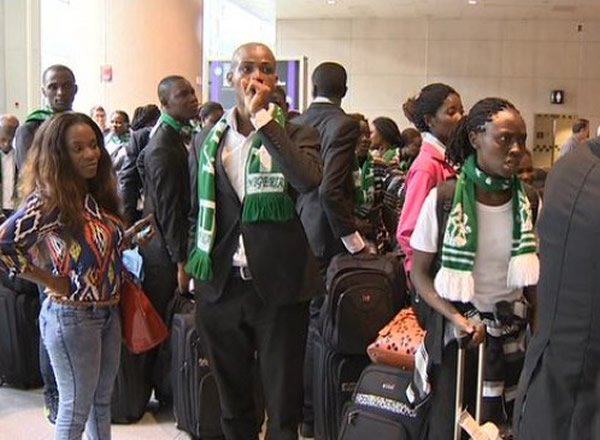 On the first of February, Kehinde Fowosere and Stephanie Ejeh graduated from the Eastern Mediterranean University.
On the first of February, Kehinde Fowosere and Stephanie Ejeh graduated from the Eastern Mediterranean University.
They are two of an annually increasing number of Nigerians who make the long trip from home to Northern Cyprus in the quest of attaining a tertiary education. Many before them, including the novelist Chigozie Obioma, have posted their happy graduation pictures on social media. But since 2007 when this exodus really began, the stories of the lives of Nigerian students in the two main Universities in that part of the world have had more than a fair dose of ignominy and despondency about them.
Unlike Kenny and Steph, Kennedy Taomwabwa will not be graduating from the Eastern Mediterranean University. He did not even make it into February as he was reportedly killed on the night of 31 January by eight locals in the Turkish Cyprus’s province of Famagusta.
Twenty-eight-year-old Kennedy was allegedly kidnapped by the locals who are believed to be students of the same school and was taken to a location where he was beaten, after which his lifeless body was deposited at a pond.
The sad tale of Kennedy’s death is another piece from the experience of racism that has become inseparable from the general experience which every Nigerian student expects to receive from studying in Northern Cyprus.
The former USSR nation offers the cheapest education for African students in Europe. As such, young persons leave the continent in large numbers to Cyprus for the elusive degree. Difficulties created by language barriers mean that these students are often isolated and have to live in colonies of English speaking persons, and wherever they are concentrated presents a potential target for racist acts.
The disintegration of the USSR into nations has produced some economic stability amongst populations, especially among women who are doubly marginalized. Nigerian students who travel to Northern Cyprus often go with much cash and could become targets; the young local women quickly identify with the young Nigerian men for potential transactions in sex in exchange for benefits like free drinks at local clubs at Chernivtsi and Kiev, as well as fancy dinners and some clothes. As may be expected, the also poor local young men assume this to be an affront against them and would take advantage of any semblance of tension between the local women and the foreigner to transfer their aggression.
Kennedy’s “offence” has not been revealed by the Police in Cyprus. It appears to be a pattern that, when situations like this happen, the local authorities and the management of the institutions involved do their utmost to conceal the identities of the culprits involved. This is the opposite of the reaction when black students are believed to have been involved in the killing of a local as such persons will have their names and faces published, according to Kehinde whose tweet about Kennedy’s death has gone viral.
The Nigerian Foreign Affairs Ministry appears reluctant to react to this issue. The response by Abike Dabiri-Erewa, the senior special assistant to President Buhari on Diaspora, was an ‘I-told-you-so’ ‘I-did-not-send-you-to-Cyprus’ double down. The exodus of Nigerian students abroad in search of a University certificate has been an indictment on the failure of the education system, but the message from the Foreign Ministry appears to be “go anywhere but Northern Cyprus”.
It means that those who go will find themselves entirely on their own, without any measures by their host countries against rampant racism and xenophobia, and without any urge to intervene from their home countries when things go bad.







